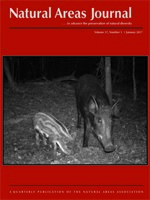Recreation is a fundamental component of human culture and the economy. In this paper, we elucidate ways in which recreation should be reconsidered in discussions of climate change. Ecosystems that support outdoor recreation can be significantly altered, extreme climatic conditions can affect plant and animal health, and extreme weather events can limit human outdoor activity. Projections indicate global temperatures will rise and precipitation will shift from historical conditions to less predictable regimes. These projected changes affect recreation and the economies recreation supports. To encourage the inclusion of recreation as a topic in future assessment synthesis reports, a snapshot of climate change impacts on regional recreation in the US is developed, using the National Park Service and Forest Service as case studies. After examining peer-reviewed and agency literature, we suggest that the impact of projected climate change on US recreation needs further scrutiny. Federal land management approaches to identifying, measuring, and managing climate change-induced recreation impacts are developing, but remain fragmented at the local and regional scale. We identify opportunities to address and improve research efforts at the intersection of climate change and outdoor recreation.
How to translate text using browser tools
1 January 2017
The Impacts of Climate Change on Natural Areas Recreation: A Multi-Region Snapshot and Agency Comparison
Becky Brice,
Christopher Fullerton,
Kelsey L. Hawkes,
Megan Mills-Novoa,
Brian F. O'Neill,
Wincenty M. Pawlowski
ACCESS THE FULL ARTICLE

Natural Areas Journal
Vol. 37 • No. 1
January 2017
Vol. 37 • No. 1
January 2017
climate change
National Climate Assessment
public lands
recreation
tourism




